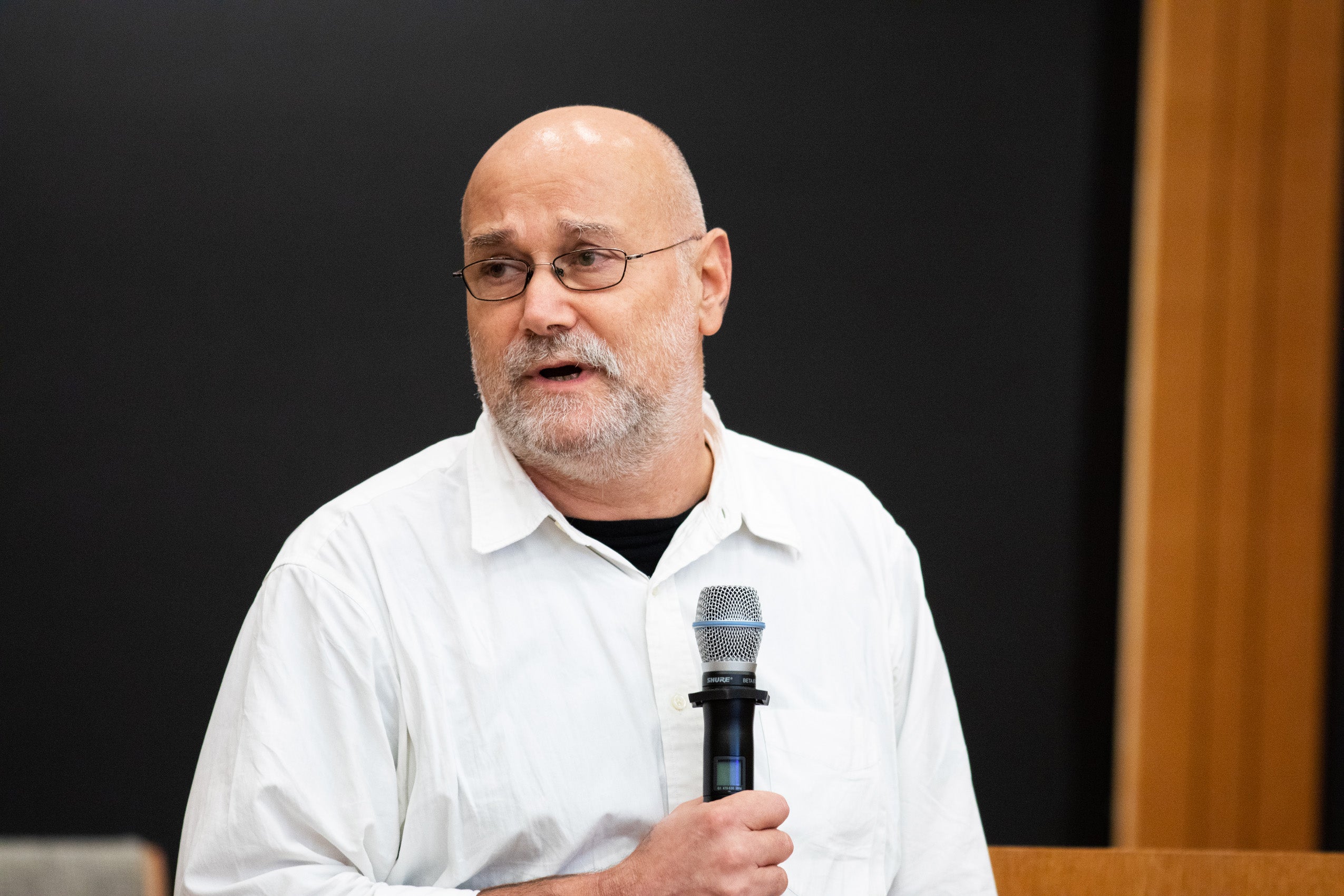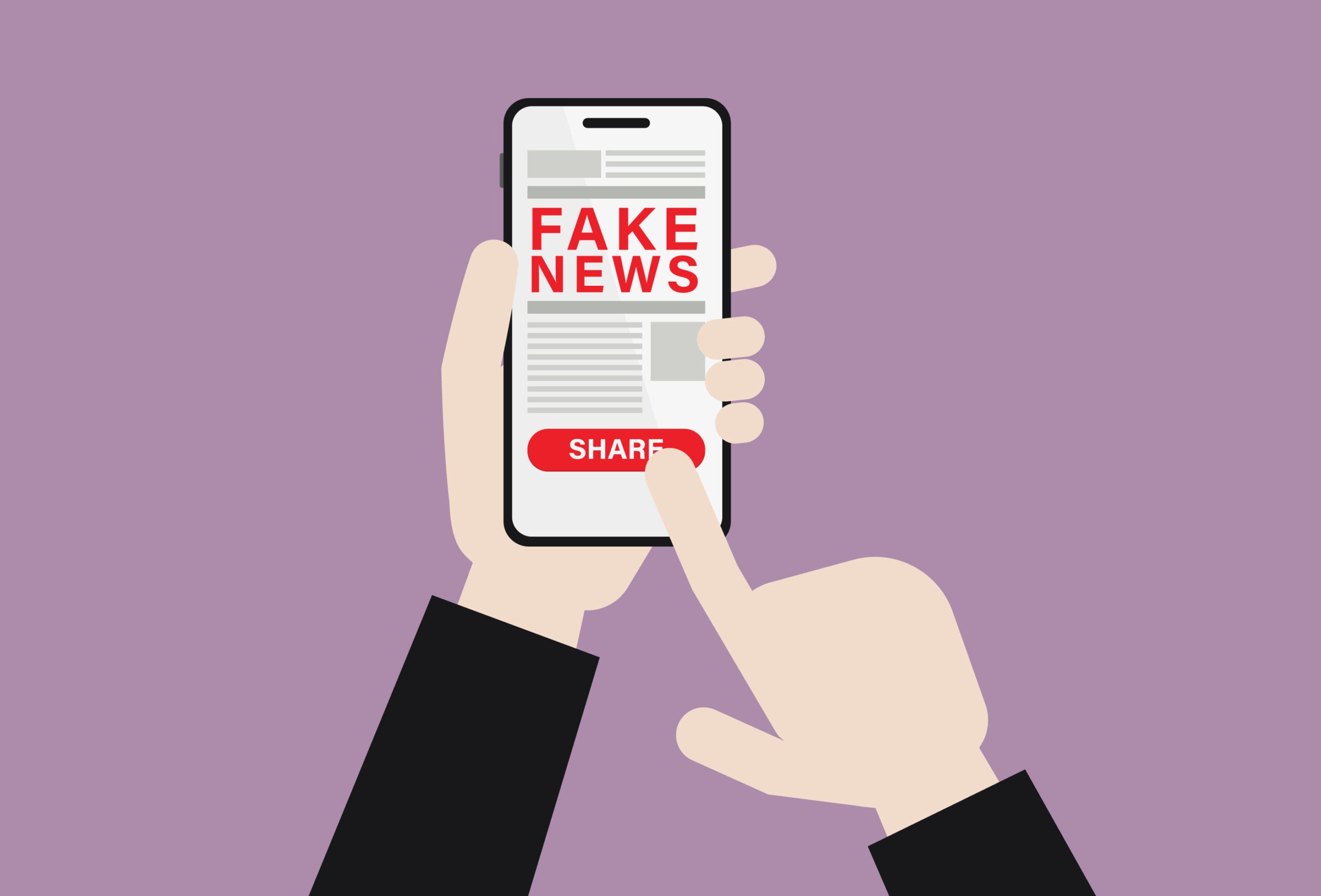Social media companies, including Twitter and Facebook, banned or suspended President Donald Trump from their platforms citing severe policy violations after he posted inaccurate and inflammatory messages on the day his supporters stormed the U.S. Capitol in an attempt to block the certification of the Electoral College vote. Amazon also removed the social media network Parler, popular with many of the president’s supporters, from its cloud hosting service, forcing it to temporarily shut down.
Harvard Law Today reached out by email to Yochai Benkler ’94, the Jack N. and Lillian R. Berkman Professor of Entrepreneurial Legal Studies at Harvard Law School and faculty co-director of the Berkman Klein Center for Internet & Society, and evelyn douek, a lecturer on law and S.J.D. candidate at Harvard Law School, for perspective on the decision, the First Amendment implications, and how it could impact the ongoing spread of mis- and disinformation online.
Harvard Law Today: Over the years, President Trump has repeatedly violated the rules of social media platforms like Twitter and Facebook. Why are so many of them only now suspending his accounts?

Yochai Benkler: For the same reason that a range of executive branch functionaries — from [Education Secretary] Betsy DeVos and [Transportation Secretary] Elaine Chao to White House staff — are resigning, and that Lindsay Graham can suddenly abandon the president on the Senate floor. In part, it is the shock of the recognition of just how far things have gone, and how dangerous this president has become. If you believe that some of these politicians and staffers actually developed a conscience, then the firms too have to deal with what passes as conscience for organizations: the deep and overwhelming internal pressure from employees, perhaps within leadership as well, surrounding their complicity in the rise of this brand of American authoritarianism. In part, it is opportunism: the assault on the Capitol offers a clear moment of coordination around which actors who were complicit in empowering Trump and his increasingly more anti-democratic practices could collectively observe him weakening, and jump ship.
evelyn douek: So I think there’s two possible answers: a formalist take and a realist take.
The formalist take is the obvious one and the one that platforms gave in their announcements: on Wednesday the president incited insurrection at the Capitol, resulting in at least five deaths, and there’s a very real risk of more violence to come. Even though platforms have long treated the president differently from other users on the grounds that what he says is inherently newsworthy and it is in the public interest for people to hear it even if it violates their rules, there was always an exception for incitements to violence. That line was crossed last week.
American voters de-platformed the president in November, Trump is leaving office in less than two weeks, and the change in the makeup of the Senate means Democrats, not Republicans, will oversee platform regulation going forward.
-Evelyn Douek
The thing is, though, that the actual content the president posted last week was not materially different from content he has posted before. Most famously, Trump’s accounts survived posting that “when the looting starts, the shooting starts” during the summer’s Black Lives Matter protests. By contrast, the tweets that Twitter cited as leading to its decision were fairly anodyne: one celebrating his supporters and another announcing that he wouldn’t be attending Joe Biden’s inauguration. So companies’ explanations weren’t a fully satisfying answer to “why now?”
Which brings us to a more realist, cynical take: American voters deplatformed the president in November, Trump is leaving office in less than two weeks, and the change in the makeup of the Senate means Democrats, not Republicans, will oversee platform regulation going forward.
The truth is it’s probably a bit of both. It’s not possible to ignore the surrounding context in evaluating speech, and that context was that the president incited a deadly assault on democracy and the risk of ongoing violence is very real. But the fact that the factors in the second answer are also likely to be at play shows just how much private power and interests can and do control the ostensibly “public” sphere.
HLT: Since the account shutdowns (and Parler suing Amazon after it pulled hosting support), many have claimed these actions violate First Amendment rights. Do they?
Benkler: No. As a matter of straight present First Amendment law, these decisions by commercial entities are not covered by the First Amendment. There are materials, historically, in First Amendment jurisprudence out of which one could still fashion some affirmative constitutional right to access the most important media of the day, but these largely fell victim in the 1970s to the neoliberal impulse to prioritize property over democracy. Ironically, had longstanding liberal efforts to introduce rights of reply, or affirmative access to dominant media platforms succeeded at the time, there would have been a clearer case for conservatives today.
The truth of the matter is that the online platforms, both social media and Google, Apple, and Amazon, do have too much power over too many aspects of society.
-Yochai Benkler
This reflects more broadly an odd feature of the present disagreements over the actions of the social media platforms, as well as those of Apple, Google, and Amazon against Parler. They have largely scrambled the alignment of a wide range of political commitments. Conservatives and free market reactionaries invariably call for limited state regulation and letting the market govern who gets what, and what gets produced and consumed in both material and cultural markets. And yet here, it is conservatives who are complaining, and arguing that under conditions of monopoly the state must enter and regulate the commercial providers who refuse to give them service. Liberals, often more attuned to the dangers of concentrated power in the hands of market actors than conservatives, are cheering the use of precisely that power against right wing radicals they see as threatening the republic.
The truth of the matter is that the online platforms, both social media and Google, Apple, and Amazon, do have too much power over too many aspects of society. And the truth is that the fundamental interests in free and robust debate in a democracy are threatened by any concentration of power, both in the hands of commercial providers and the state. When Wikileaks released the War Logs and Embassy Cables a decade ago, progressives were correct to decry the coordinated attack by domain name service providers, hosting services, and even the credit card companies on Wikileaks. And they weren’t only right because the materials released in the War Logs did in fact deserve protection. They were right because in a society whose public sphere is so pervasively provisioned and controlled by commercial entities, what those entities can and cannot do implicates the very same values that animate the First Amendment.
If we want a platform that will be free of the power of commercial media, and will be subject to First Amendment concerns, what we need is a public option internet, if you will. Just as we have the postal service. That kind of publicly funded, open platform of first and last resort, as an alternative to commercial platforms, would have been subject to First Amendment review had it, for example, cut off cloud services to Parler. Ironically, it is impossible to see those people now railing against the decisions of for–profit firms that adopt that option.

douek: There are many difficult issues here, but the First Amendment issue is not one of them: quite clearly this does not violate the First Amendment. The First Amendment only restricts the government’s ability to regulate speech, not private companies’.
Indeed, as recently as 2019 the Supreme Court held, in an opinion written by Justice Kavanaugh, that “when a private entity provides a forum for speech, the private entity is not ordinarily constrained by the First Amendment because the private entity is not a state actor. The private entity may thus exercise editorial discretion over the speech and speakers in the forum.” This was what you might call a judicial subtweet: the question of whether social media companies could be restricted by the First Amendment had been in the air for a while, and this swatted that notion down pretty conclusively for now.
But I’d like to pause a moment, because I think we should resist the reductionist version of this debate that stops there and says “they are private corporations, the First Amendment doesn’t apply, so they should be allowed to do whatever, whenever.” Quite clearly there are speech interests and First Amendment values here. Platforms are really important forums for speech! They facilitate democracy, as well as play a check and balance within it. I believe it matters how platforms make decisions, and I believe we deserve better than just submitting ourselves to the whims of our tech overlords. We can and should demand greater transparency, consistency, due process and accountability in the rules they set and enforce, especially for the more vulnerable and marginalized users who don’t get anywhere near as much consideration as the leader of the free world.
HLT: What, if anything, do these actions mean going forward? Is it a political reaction or perhaps a real effort to halt the spreading of misinformation?
In our efforts to counter the fact that the internet is also core enabler of anti-democratic insurrectionist action, we must not let our present anxiety drive us to lose what is critically important about the internet.
-Yochai Benkler
Benkler: We’ve seen Twitter suspending tens of thousands of accounts. It’s clear that the violent breaching of the Capitol has created a state of emergency, if you will, that has unleashed a dynamic in which the tech companies are trying to show that they are responsible. This comes as an almost cathartic moment after four years of sustained criticism of the platforms that they are enabling and reinforcing disinformation. In the immediate future, I suspect that the consequences will be focused narrowly around disinformation related to the election, and to efforts to organize acts of insurrection. In the longer term, the interest of the platforms is to expand their user base and provide people with as broad and flexible a platform designed to keep them logged in and engaged. As long as the platforms serve hundreds of millions of people whose interests, knowledge, and beliefs are as diverse as they are, it will be nearly impossible to assure that only high–quality information is disseminated. And in many cases that is as it should be.
It is critical that in the anxiety of the moment, however justified, we don’t find ourselves eliminating those features of the internet that have enabled it to be a platform for genuinely democratic mobilization, speech and action. Whether it is small dollar donations that effectively muted the power of money in elections, at least in nationally prominent races, or activists videotaping police shootings to transform the public agenda around Black Lives Matter, distributed communications on the internet are a core enabler of genuine democratic participation. In our efforts to counter the fact that the internet is also core enabler of anti-democratic insurrectionist action, we must not let our present anxiety drive us to lose what is critically important about the internet. In this, those of us who care deeply about democracy and free speech must remain anchored in the troubled history of speech suppression in times of national security emergency as we address the genuine threats of the present moment.
douek: This is the big question and I’m going to give you a cop-out answer: it’s likely to be a bit of both. There has been a general trend towards greater content moderation over the last decade but particularly over the last year as the pandemic really made platforms step in and crack down on misinformation much more than they ever had before. Seven months ago, Twitter applied the first label on a Trump tweet saying it was misinformation, and it was a watershed event. In the last few months of his account’s existence, it was entirely unremarkable. Everything in society has changed a lot in the last 12 months, and content moderation is no exception. So you can see the suspension of Trump’s account as part of that story.
At the same time, Donald Trump is, in so many ways, likely to be a special case. I do not think we’re likely to see mass deplatformings of political figures anytime soon.
